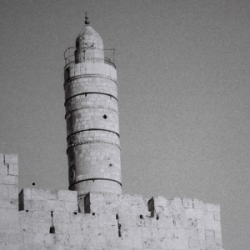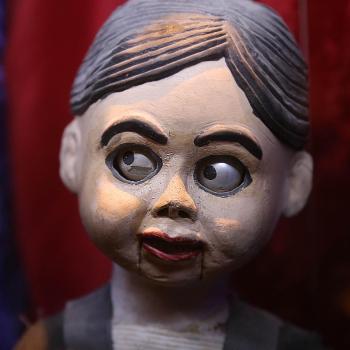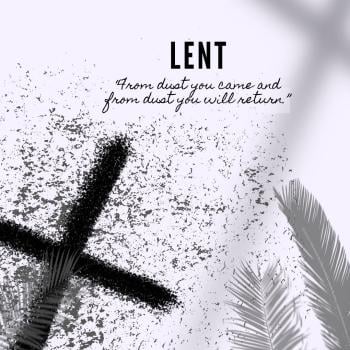Just over a year later, my own father appeared to be dying. He had already been on dialysis for three years, and was now bleeding internally. When the doctors stopped the bleeding, Dad had heart attacks. When they prevented the attacks, his bleeding worsened. It appeared that we were in a Catch-22 which would end his life.
I continued to communicate with Elder Chirwa, who was now in the final stretch of his mission. Though he was half my age, I knew he understood what I was going through in a way the others in the "band of brothers" couldn't.
"You were there for me," he wrote, "and I will be there for you."
I poured my heart out to this young man I had never met, this remarkable missionary whom I had so grossly underestimated when first introduced to his name. How I loved him! I wrote: "This process of losing my father—and I don't know how long it will take—is so much harder than I ever imagined it would be. I wish we didn't have this one thing in common, but it helps to know that you know."
 |
| The Youngs with Robert Blair |
In reply, he sent me the lyrics to a country song:
And when you dream, dream big
As big as the ocean blue
'Cause when you dream it might come true
When you dream, dream big
"Sister Young, dream big," he added. "The plan of our Heavenly Father is greater than we can understand. Today I received a birthday card that Dad had gotten me but never got to sign. My aunt found it in his diary. I was happy. My aunt said that Dad would have loved to give me the keys to the world. Despite him not being there to do so, I have a Heavenly Father that surely will."
There would be yet another surprise amongst Jacob Chirwa's papers: a poem he had written prophesying his own death, as though he had dreamed it.
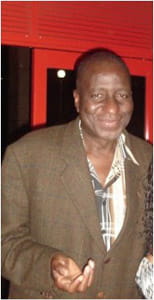 |
| Professor Jacob Chirwa in a professional moment |
The funeral cortege is long,
longer than any that I have ever seen...
All I know is that before I was placed here
There was a large crowd of people wailing
As they passed by me.
I must confess
I have never seen such ugly and contorted faces in my life,
Faces all screwed up
As if they had been forced to swallow an overdose
Of quinine tablets without water,
All howling at the top of their voices,
Calling my name...
There were a lot of people
peeping into the coffin where my body lay in state.
I even saw what would have been
A beautiful girl
if her face was not contorted.
She peeped and I think she smiled, and was gone...
And so it continued,
This long line of people walking past and mumbling.
At one point, I almost burst out laughing
when one of them said,
What a handsome face!
I thought to myself,
What, me—handsome?Actually, I am ugly.
The ugliness that makes the owner aware of it.
Everything on my face is a sort of
culmination of God's craziest adventures in creativity . . .
So you now understand my amazement
when this person mentioned
My being handsome.
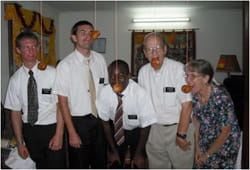 |
| Elder Chirwa and others playing |
Had Jacob Chirwa considered himself ugly? Was he genuinely surprised that someone would think him handsome? Certainly, he was admired in Zambia. His wife reported that he was renowned not only as an actor but as an expert on Isaiah. His sister-in-law said that just days before his death, he had taught a beautiful Sunday school lesson, using his acting abilities to their fullest, completely comfortable with his class. And yet there were his own words—the suggestion that he did not recognize that he was handsome.
Jacob's poem reminded me of some plot points in the musical Man of La Mancha, based on Cervantes' Don Quixote. An old man, who appears delusional, imagines that he is actually a knight and must do good and worthy things to earn a noble title. Ultimately, he fights a giant (really a windmill) and demands that a barber give him a title. The barber puts his shaving basin on Don Quixote's head and dubs him "Knight of the Woeful Countenance." Thus ennobled, Don Quixote seeks a virtuous woman to whom he will dedicate all of his battle victories. He selects a prostitute/scullery maid as the object of his affection—imagining her out of her rags and into resplendency. Ultimately, she is changed by the way he sees and treats her. Her eyes are opened to her own glory. Later, when Don Quixote is forgetting his own quest, she begs him to remember what he had stood for: the impossible dream. Just as he had awakened her to a sense of something greater than she had dared imagine, so she awakens him to a remembrance of his own nobility. Even if his dreams have been "impossible," his heart has been good, and he has lifted the downtrodden by treating them with dignity.
